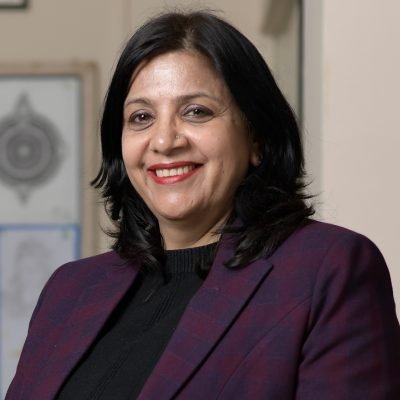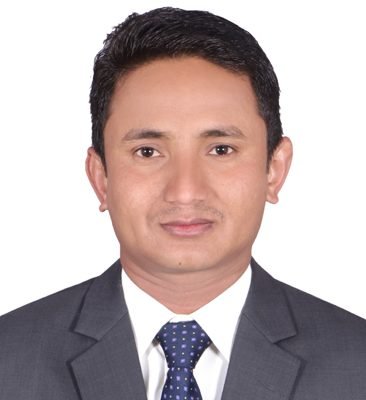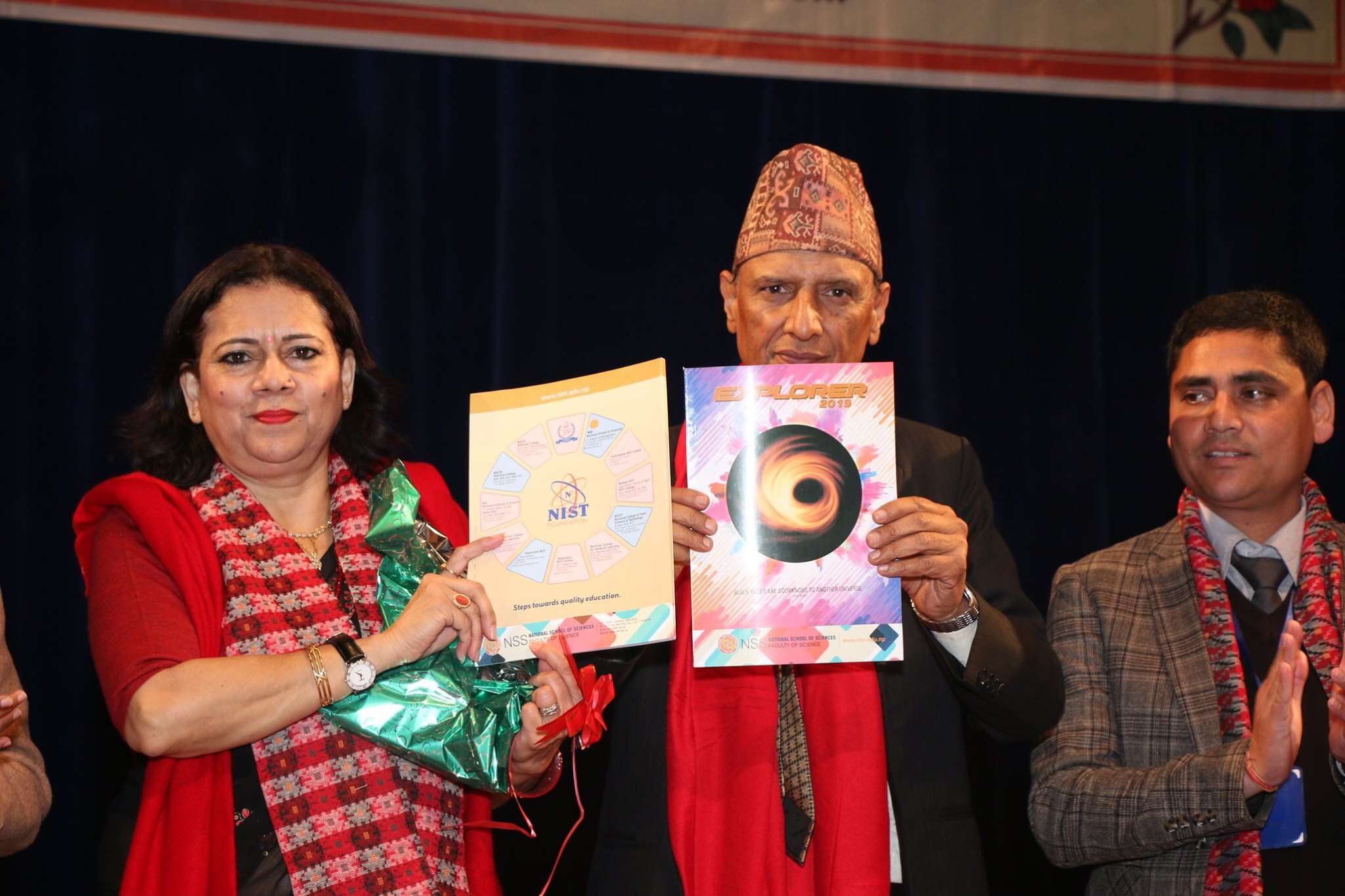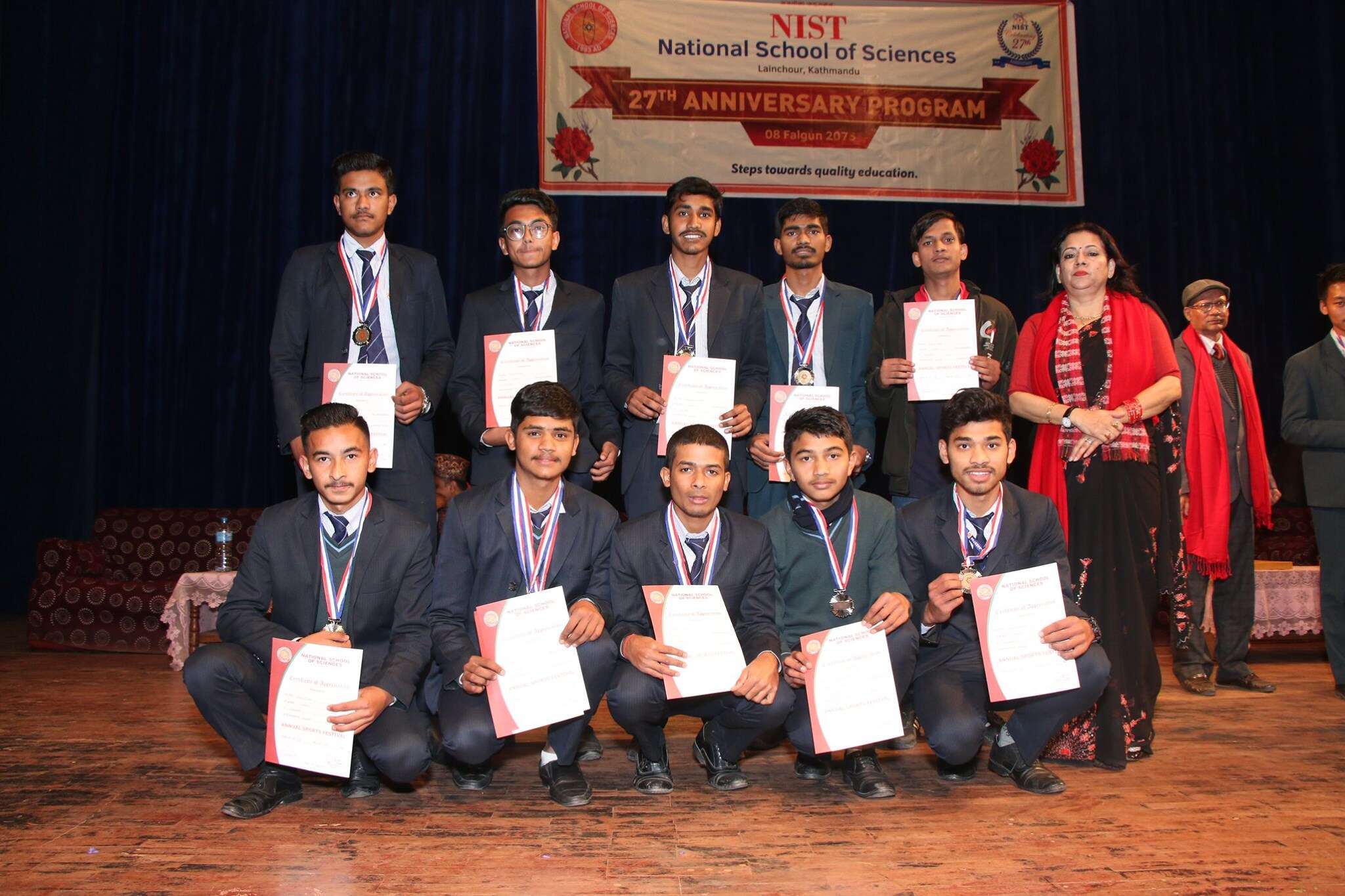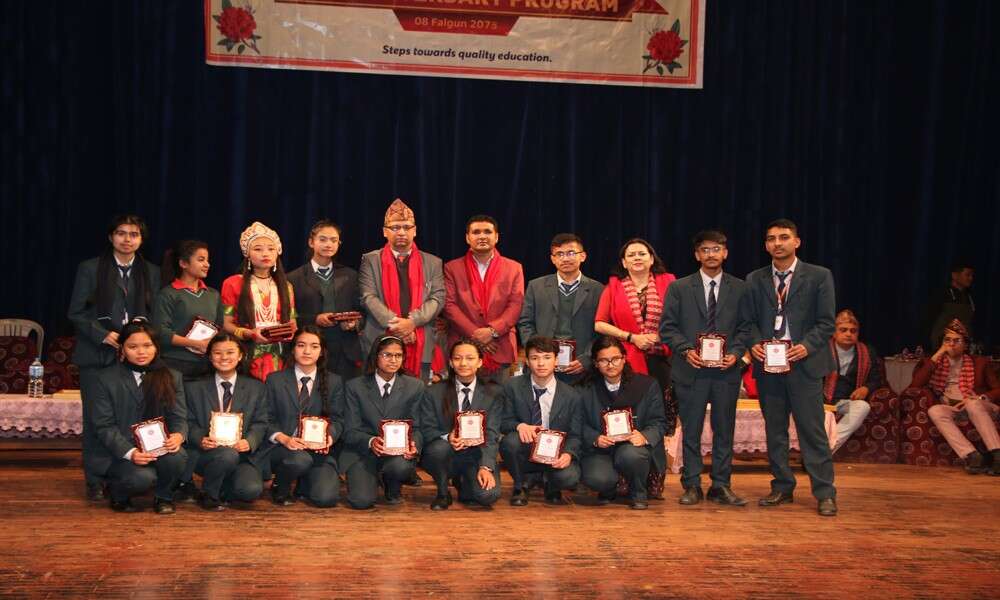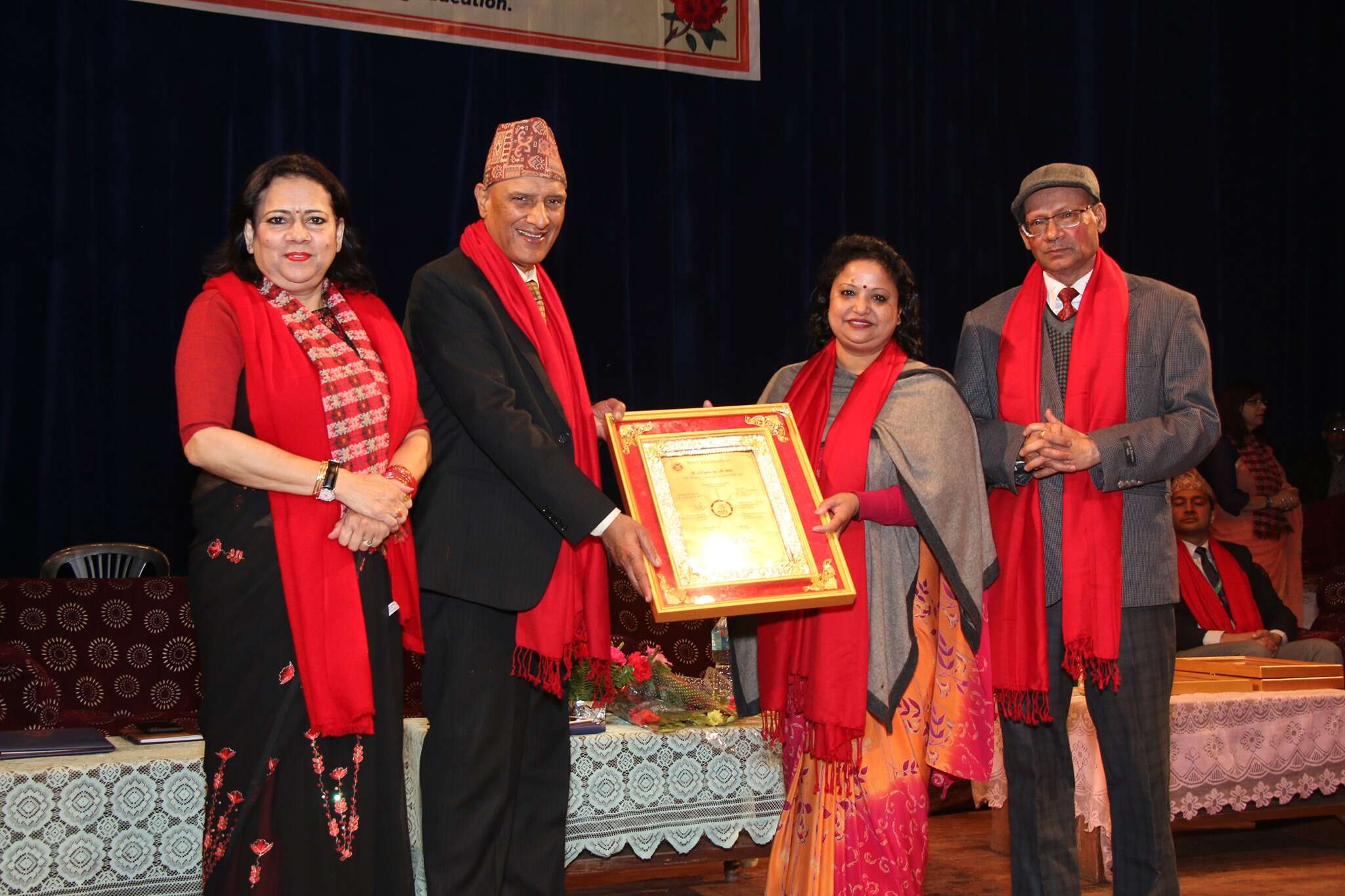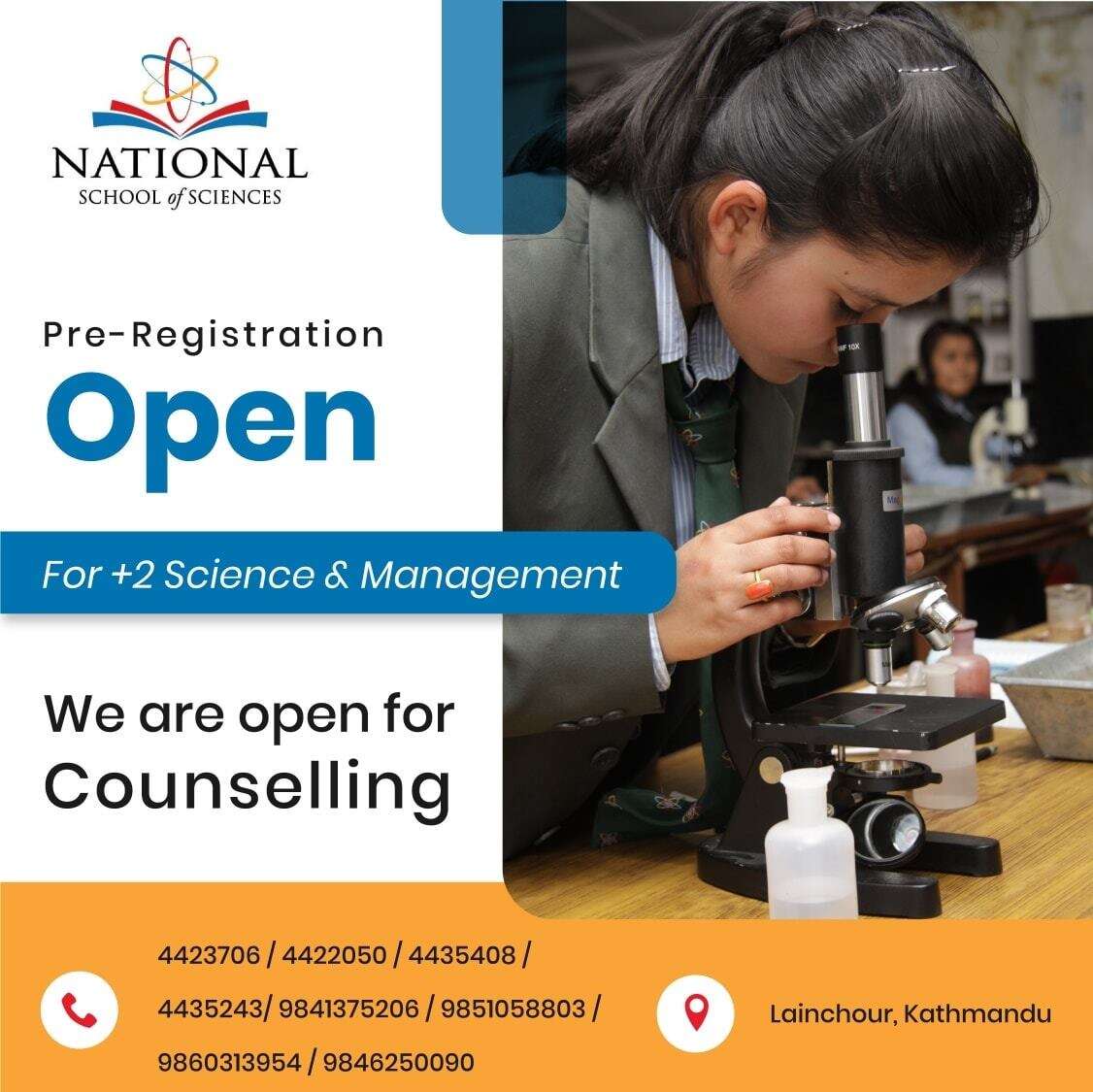

National School of Sciences-NIST
Lainchour, Kathmandu
Dr. Madhav Prasad Baral
Chairman
As a renowned academician, Dr. Madhav Prasad Baral has a long–standing experience and established credentials as a forerunner in the area of providing both high school and higher education in the country. Having established National School of Science (NSS) as the Founder Principal back in 1993 AD, the journey of more than twenty-six years has seen the NSS firmly established in the academic firmament as an educational institute of repute. Dr. Baral completed his MS in Biochemistry and Ph.D. in Food Chemistry from the University of the Philippines, one of the most popular universities in the world. Upon his return, he served as a Senio... See More
Mrs. Pranita Sharma Baral
Executive Director
Mrs. Pranita S. Baral is a dedicated, resourceful and goal-driven professional educator with a strong commitment to the social and academic development of every student. With over twenty-eight years of experience as an educator in addition to her academic prowess, she is recognized for her superior interpersonal and communication skills to foster meaningful relationships with students, staff and parents.
Mrs. Baral earned a Master’s Degree in Botany from Tribhuvan University, and worked for a brief period as Junior Scientific Officer at RONAST (now NAST) before joining St. Xavier’s College, Maitighar as a full-time fa... See More
Rajendra K Ghising, Ph. D.
Executive Director – NIST Foundation
Dr. Rajendra K. Ghising currently serves as Executive Director of NIST Foundation, a not–for–profit organization dedicated to providing education institutions with support to reform in today’s changed context. He has more than two decades of experience in the management and operation of academic institutions. Prior to joining the NIST Foundation, he served as Chief Executive of GEMS School and Kathmandu World School, and during his association with these two institutions, he played an instrumental role in developing vision, strategies and policies to provide students with high quality education as well as positioning the... See More
About College
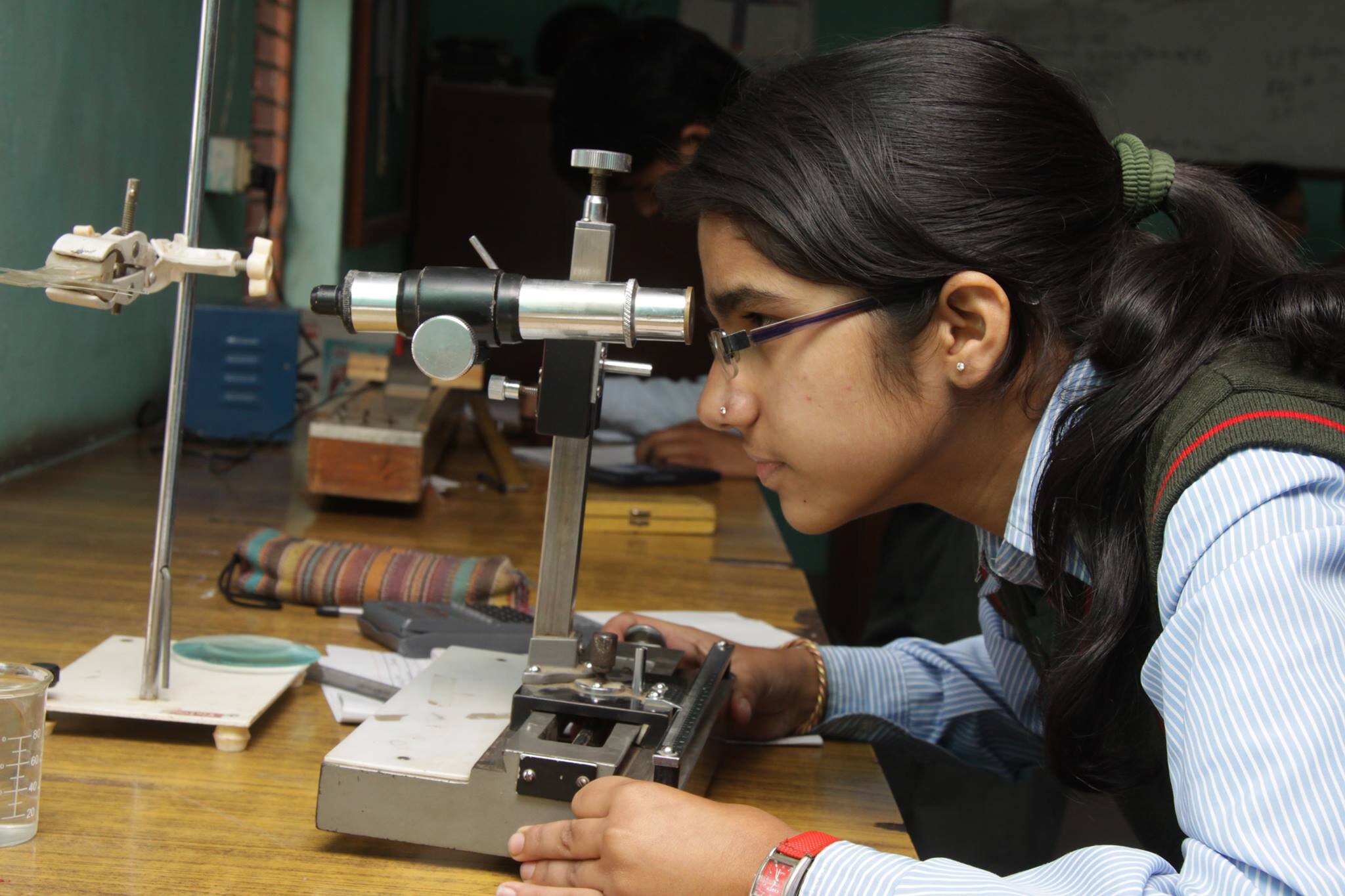
National School of Sciences is a premier education institution, which was established in 1993. It is situated at Lainchour, a strategically important location in the Kathmandu valley, and is one of the constituent institutions under the NIST Foundation. The school has been conducting Plus 2 programme (Grade 11 – 12), now Upper Secondary school classes, both in Science and Management for the last three decades. The school follows the national curriculum under the National Examination Board (NEB), Nepal, and the medium of instruction is English except for Nepali subject. The school management is planning to introduce other courses in Law, Arts and Humanities in Grade 11–12 in the near future while the ultimate goal is to provide the continuum of education from Pre–school to Grade 12 under the National School of Sciences within the next few years.
The NIST Foundation was initiated by a group of scientists and academicians. The core objectives were to establish academic institutions, and to provide students with quality education focusing primarily on science and technology, so as to promote the science education in the country. At present, there are nine academic institutions including the National School of Sciences under the NIST Foundation, and they run classes from Pre–school to university level at different locations. The school has always emphasized the academic excellence of students and fostered a culture of innovation and collaboration. As a result, our students graduate with outstanding performance in the board examinations every year. Today, many of its alumni are engaged in the highly regarded professions and businesses within the country and abroad.
The school enrolls 2,000 students annually, in the Science and Management Stream. The students are drawn from different states, diverse culture and ethnicity allowing them to engage in intercultural understanding and to experience a rich learning. The school provides students with ample opportunities to engage in co–curricular and extra–curricular activities such as community service, and leadership programmes that ensure their holistic development which enables them to succeed not only in higher education but in life as well. In addition, the school aspires to instill in students the moral values such as integrity, responsibility, empathy, collaboration and respect that are essential for students to be a good human being while providing them with a caring, safe and supportive environment to learn thereby nature their potential.
Why National School of Sciences?
Located at the heart of the capital city, Kathmandu and easily accessible because of the extensive network of public transport, National School of Sciences, popularly known as NIST College has been at the helm of Upper Secondary school education (Grade 11–12), earlier known as Plus 2, for nearly three decades. Started with humble beginning from a total of 157 students and 15 staff including administrative and support staff in Science stream only, the National School of Sciences has come a long way. The annual intake in the school hovers around 1,200 students in Grade 11 (both Science and Management programme). Through all these years of providing academic service for aspiring students, the National School of Sciences has rightfully carved a niche for itself, and is acknowledged for providing quality education within an affordable fee structure.
Enriching the learning experience of students has always been, and will be at the core of our vision and mission, and we are always guided by the need to provide conducive environment and services for our learners to make their overall experience truly elevating. The need of the hour demands a paradigm shift in the way we cater to the educational needs of the new generation learners. Today, education has to be imparted effectively through a balanced and holistic approach to teaching–learning i.e. the development of learner’s intellectual, emotional, social and personal skills, physical wellbeing and artistic, creative and spiritual potentials. The school seeks to engage students through a participatory approach to teaching–learning process, and encourages personal and collective responsibility. This is the cornerstone of the educational philosophy we subscribe to, and inculcate in our learners at National School of Sciences to enable them as life-long learners and global citizens.
Our Courses
Meet Our Team
Management Team
Ms. Chanda Subedi
(Academic-in-Charge (Science) ,Chemistry )
Mr. Sahaj Kumar Ghale
(Academic Coordinator (Management) ,Marketing )
Mr. Keshab Dhami
(Department Coordinator (English) ,English )
Mr. Bharat Bahadur Bhandari
(Department Coordinator (Nepali) ,Nepali )
Mr. Amrit Sharma (Gautam)
(Department Coordinator (Mathematics) ,Mathematics )
Ms. Gita Timsina
(Department Coordinator (Biology) ,Biology )
Mr. Ashok Adhikari
(Department Coordinator (Physics) ,Physics )
Mr. Shiva Kumar Khatri
(Department Coordinator (Chemistry) ,Chemistry )
Core Executive Team
Ms. Chanda Subedi
(Academic-in-Charge (Science) )
Mr. Amrit Sharma (Gautam)
(Academic-in-Charge (Science) )
Mr. Pushkar Raj Baral
(Head of Operations )
Mr. Bharat Bahadur Bhandari
(Head of Department (Nepali )
Mr. Laxman Jnawali
((HOD, English) (M. Phil, MA, BA, B.Ed.; in English) )
Mr. Puskal Khanal
(Head of Department (Biology )
Mr. Krishna Thapa (Magar)
((HOD, Mathematics) (MA in Mathematics) )
Mr. Ranoj Bhatta
(Head of Department (Computer Science )
Facilities
Classrooms are spaciously designed to accommodate thirty–six students. Student furniture is chosen so as to provide the necessary comfort and support for proper seating posture taking into account the long hours students put in inside the classroom. Each classroom is equipped with a fixed projector, and access to high-speed internet connectivity to ensure the use of technology as an aid for teaching-learning activities in the classroom.
At NSS, we provide students with a wide range of activities that are integrated within the weekly schedule of the academic routine. A designated hour is dedicated to the holistic development. that It includes emotional, social, physical, artistic, creative and spiritual development of students. The school offers hands–on projects and opportunities for students to hone essential life-skills that prepare them to become life–long learners and achievers. Students are encouraged, and provided with forums to develop their leadership skills and ability to adapt to new challenges, and to become lifelong learners. Different clubs comprising and involving students as members such as IT and Science Club, Social Club, Young Entrepreneurs Club, Debate Club, Theatre and Communication, among others are invested with the responsibility of organizing and conducting at least one major event showcasing the Club activities during the academic year.
The school provides first aid services to students throughout the duration of the school hours. Minor injuries and illnesses are treated in the school infirmary. In case of major injury, the student is immediately taken to the nearest hospital, and parents / guardians are notified. In such cases, parents / students are required to bear the medical expenses.
The school provides transportation facilities to students who require bus service to commute to and from the school. Transportation service is available only within the periphery of ten kilometers to the maximum. However, application for the bus service, however, should be made at the time of admission.
The school has a prescribed set of school uniform which all students must adhere to. The school uniform includes shirt, pant, tie and coat. Apart from the regular uniform, students are also provided with a house T-shirt, which they need to wear during the ECAs in the school. Details regarding the uniform will be provided at the time of admission.
The school has a provision of canteen for students, and they can take meal (lunch or snacks) on self-payment. The canteen serves freshly prepared and well–balanced lunch and snacks to students and staff. Students are given a choice between vegetarian and non–vegetarian food with a diverse set of menu options every day to ensure they enjoy healthy and nutritious meals.
Strategically placed outside each classroom are individual lockers for every student. Each student is assigned a locker at the beginning of the academic session following registration. The locker is the property of the school under the responsibility of the assigned student, and should be used to store personal items, stationery, which are not allowed inside the classroom. The locker must be under lock and key at all times. However, the student must return the key to the school administration during long holidays.
The above can be included only if we decide to keep lockers for individual students.
In the technology driven era we live in, it would be a fallacy to completely ban the bringing of smartphones to school. However, there is a very thin line between the use and misuse of smartphones by a student. Therefore, to avoid any unpleasant situation, students are required to deposit their smartphones in pigeonholes for safekeeping. Smartphones are strictly prohibited from being taken to the classroom, and if found on person inside the classroom, irrespective of it being used or not, the mobile phone will be confiscated till the end of the academic session. Students are provided tokens for the deposited smartphone which will be reclaimed after all the classes are complete for the day.
The school has an appropriate school Management Information System for managing students’ personal profile, academic and non–academic activities during the course of their studies. Upon admission to the school, every student will be provided a unique account / registration number for accessing the school MIS. Today, the management information system has become an important part of any educational system. It enhances efficient management of school functions, and provides a better learning experience for students besides assuring parents of their child’s safety and progress.
The school management information system communicates with the students and parents through email, mobile apps, etc., and students can use various online tools and platforms for accessing learning resources provided by teachers and the school administration.
Download
Our Video Gallery
Our FAQ
Located at Lainchour Opposite of Malla Hotel. Our College is served by regular & quick public transport – buses, micro-vans, and tempos.
Science
Management
Admission is given on the basis of an Entrance Examination which is mandatory, comprehensive, and has to be cleared or on the basis of SEE grades. A personal interview closely conducted by the College Management is compulsory for all students accompanied by their parents.
Yes, our college offers varied scholarships to students on a need-cum-merit basis.
Some of our co-curricular activities include debating, elocution, essay writing, painting, drama, project, and excursions.
Our Library is full of text-books, reference books/encyclopedias, and journals/ newspapers/magazines to keep the students well-informed. We have transportation facility as well.

